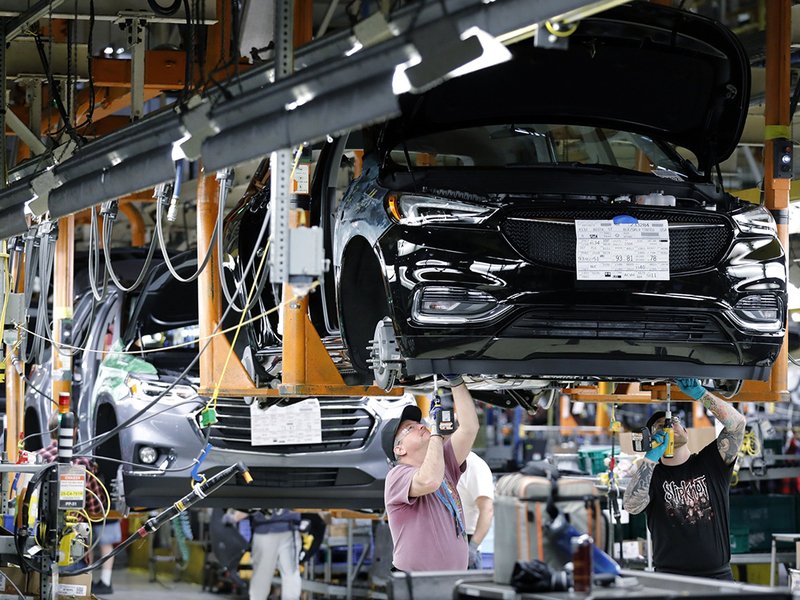
DETROIT — The UAW on Thursday said restarting U.S. auto production in early May, a target much of the industry has been aiming for, would be “too risky” for workers and their families.
The union’s opposition threatens to upend plans by the Detroit 3 to end a near-total shutdown that already has lasted more than a month. Fiat Chrysler Automobiles had said it was aiming to restart several U.S. factories May 4, and information given to employees and suppliers indicated that Ford Motor Co. and General Motors were considering a similar time frame.
“At this point in time, the UAW does not believe the scientific data is conclusive that it is safe to have our members back in the workplace,” UAW President Rory Gamble said in a statement. “We have not done enough testing to really understand the threat our members face. We want to make sure the scientific data is supportive and every possible health protocols and enhanced protections are in place before UAW members walk into the workplace.”
The Detroit 3 and the union have been in talks about reopening plants with a number of enhanced safety measures, including temperature checks and work stations reorganized to spread employees further apart.
Faurecia, a seating and interiors supplier, this week told its UAW-represented employees in Saline, Mich., to report to work Monday, April 27, to restart production for Tesla, before later pushing back the time frame by one week. The plant would restart May 4 for Ford Motor Co. and Fiat Chrysler Automobiles, workers were told.
“We strongly suggest to our companies in all sectors that an early-May date is too soon and too risky to our members, their families and their communities,” Gamble said. “That said, we are happy with the auto companies’ response and cooperation on working through the health and safety protocols we will need in the workplace when it is appropriate to restart.”
A UAW spokesman said the union has agreed to voluntary assignments for its members as long as safety protocols are in place, as has been the case during the shutdown at plants where automakers are building medical equipment and protective gear.
When asked if the union would keep workers home should the automakers reopen their plants May 4, the spokesman said: “We continue to have dialogue with the Detroit 3.”
FCA responded to the UAW’s comments with this statement: “FCA continues to make the health and well-being of its employees a top priority. During this current production pause, we have been working with government officials and the UAW to implement new procedures to certify the daily wellness of our work force while also redesigning work stations to maintain proper social distancing and expanding the already extensive cleaning protocols at all locations. As we have said before, we will only restart operations with safe, secure and sanitized workplaces to protect all of our employees.”
Gerald Johnson, GM’s executive vice president of global manufacturing, told Automotive News on Thursday that the company’s focus is on safety.
“We’ve learned a lot over the last four weeks as we’ve been down,” Johnson said. “We’ve talked to and interacted with medical professionals, professionals in infectious disease, government officials, our union partners … to formulate a protocol that we’re going to have confidence in. We have that. So in that regard, we’re ready. We’re ready from equipment and supplies required to execute the protocol — when the time is right. And there are other factors that have to be considered for right timing, such as being aligned with our government officials in states and in countries, because we have to bring our whole supply base up with us. And when we’re assured of those alignments, we’ll be ready from a safety standpoint. We’ll bring our people back to work.”
Ford, in a statement, said it had not determined when production would resume.
“We are continuing to assess public health conditions, government guidelines and supplier readiness to determine when the time is right to resume production,” a Ford spokeswoman said.
Hannah Lutz and Vince Bond Jr. contributed to this report.